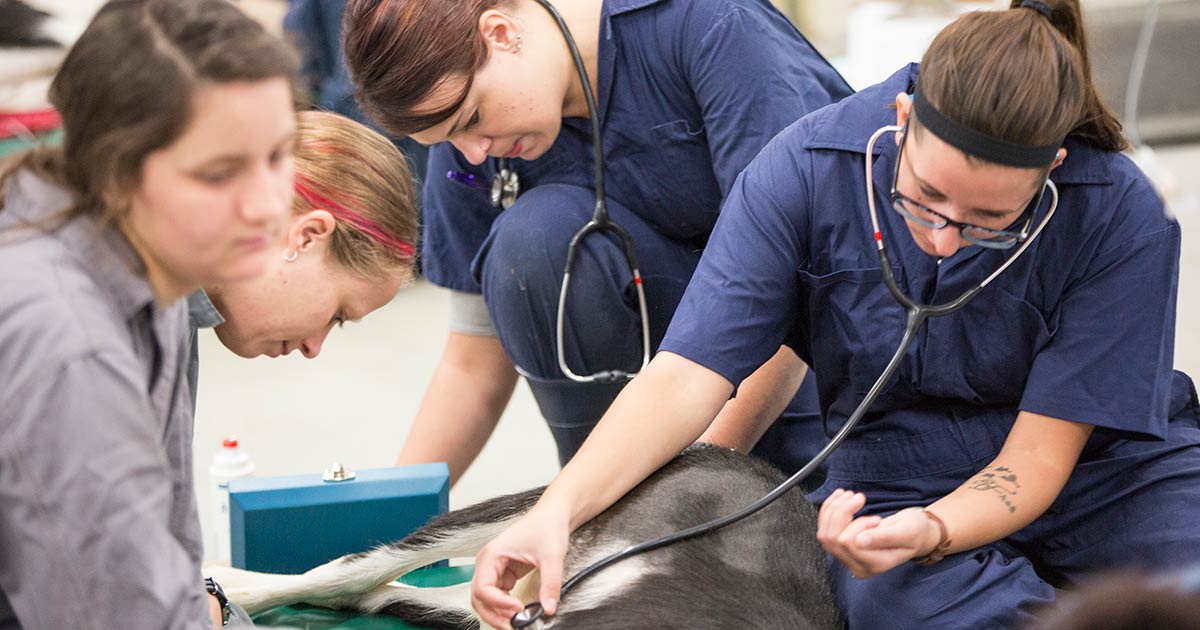
Exotic pet owner face many challenges. They deserve the best medical assistance. At Vestal Veterinary Hospital and Emergency Clinic, we are experienced in treating exotic pets of all sizes and species. We also offer a wide variety of services for these special animals.
Our veterinarians are ABVP (Avian board of Veterinary Practitioners), certified and have the knowledge and experience necessary to make your exotic pet thrive. Our doctors have extensive knowledge in animal behavior, dermatology, surgery, and oncology.
We are equipped with the best in diagnostic and surgery equipment. Our staff members are committed to providing the highest quality of care for your pets.

We are available 24 hours a days for emergency veterinary care for your pet. We have an on-call veterinarian who will consult with you to determine the best action for your pet.
For emergency avian vets, we recommend that you call us to schedule a consultation. We will then refer you directly to the most qualified veterinarian in your community. We will help you determine if your exotic pet needs emergency veterinary care or not and give you guidance on how to care for your pet at home until we can see them again.
We are available 24/7 to answer your questions. We strive to provide exceptional customer service so that your experience with us will be unforgettable.
We believe that all pets deserve the best care possible, and we will do everything we can to make your pet feel comfortable in our care. We will take the time to get know you and your pet, so that we can give them the best possible care.

We have a quiet hospital wing which is specially designed to cater for exotic pet needs. The wing is outfitted with a 24-hour monitoring system that ensures your pet will receive the best care possible.
FAQ
What are some things to consider before purchasing an exotic pet
You need to be careful before you decide to buy an exotic pet. The first thing you need to do is decide whether you want to keep the animal as a pet or if you want to sell it for money. If you plan to keep it as a pet, make sure you have enough room. Also, you need to determine how much time and effort it will take. It's not easy to care about an animal. But it's well worth it.
If you're looking to sell the animal then you should find someone willing and able to buy it. Make sure the person buying your animal knows how to take care of it. It is important to not overfeed your animal. This could lead to other health issues later.
If you choose to get an exotic pet, then you need to make sure that you research all aspects of them. Many websites have information on many species of pets. Be cautious not to fall for scams.
What should you think about when purchasing a pet for your family?
You must first consider what kind lifestyle you wish for yourself, your family, and your friends. Do you have any children? If so, how many? How old are they now? Are there any special dietary preferences?
Do you have allergies? Is there any additional information you need about your pet?
After answering these questions, consider whether you are looking for an active companion or a calm lap dog, a house-trained pet, or a tank of tropical fish.
Adopting a puppy is a great idea. Make sure to visit a rescue or shelter group so you can get to know the animals and feel at ease with them.
You will also need to confirm that the animal has been immunized against rabies or other diseases.
Also, inquire about the owner's willingness to take care of your pet while you travel. This will allow you to leave your pet at home and not worry about it.
You should remember that pets are a part of your family and that you should not adopt them unless you truly love them!
What type of food should I give my dog to eat?
It is important to give your dog a healthy diet.
Protein-rich foods include beef, chicken, eggs, fish, and dairy products.
Other foods high in carbohydrates include vegetables, fruits, breads, cereals pasta, rice, potatoes and beans.
Low-fat foods include lean meats and poultry, fish, whole grains, seeds, and nuts.
Before giving your dog different food types, always consult your veterinarian.
Statistics
- For example, if your policy has a 90% reimbursement rate and you've already met your deductible, your insurer would pay you 90% of the amount you paid the vet, as long as you're still below the coverage limits of your policy. (usnews.com)
- Reimbursement rates vary by insurer, but common rates range from 60% to 100% of your veterinary bill. (usnews.com)
- Here's a sobering reality: when you add up vaccinations, health exams, heartworm medications, litter, collars and leashes, food, and grooming, you can expect a bill of at least $1,000 a year, according to SSPCA. (bustle.com)
- Pet insurance helps pay for your pet's medical care, with many policies covering up to 90 percent of your vet bills. (money.com)
- It's among a relatively few companies that provide policies with a full (100%) coverage option, meaning you are not responsible for any co-payment of bills. (money.com)
External Links
How To
How to train your cat.
To properly train your cat, first you must understand his/her nature. Cats have complex brains. Cats are intelligent, emotional creatures. To ensure your cat behaves well, you need to consider his/her personality. You should know how to treat your cat.
It is important for cats to be independent. They do not like being told "no". You may be angry if they tell you "no". When your cat does something wrong, you shouldn't hit him/her. Your cat needs love and affection, but it does not mean you can treat him/her like a human being.
You should work with your cat to resolve any problems. Try to talk to him/her calmly and gently. Do not yell at him/her. You can make him/her feel worse by shouting at you. Also, you cannot force your cat to eat. Sometimes your cat may refuse to eat. When this happens, you should give him/her some treats. You should not give them too many treats as it could lead to overeating.
It is important to keep your cat clean. Each day you should thoroughly clean your cat. To remove dirt and dust, use a damp cloth. Check to make sure your cat is free of fleas. Flea bites can cause irritation to the skin and allergies. Flea bites can lead to skin irritation and allergic reactions. You should treat them with a special shampoo.
Cats are social animals. They love spending time with people. That is why you should spend quality time with your cat. Play with your cat, play with him/her and give him/her a bath. These activities will make you cat happy.
Start training your cat at an early age. When your kitten is just two weeks old, you should begin training him/her. Three months is the best time to start training your cat. Your cat will be fully grown by this time and ready to learn new things.
When you show your cat tricks you must explain every step. If you want to teach your cat to sit down, then show it/him the chair. Then you will reward your cat with a treat and say "sit". These steps should be repeated until your cat understands.
Remember that cats are intelligent. Cats can quickly figure out how they should perform tasks. They require patience and persistence. Do not expect your cat will be able to master any task in a flash. Allow your cat to practice many times before giving up.
Never forget that cats are wild animals. Cats are playful and curious by nature. If your cat is free to roam, he/she could accidentally knock over things. Your cat should be kept in a safe space where he/she will not hurt himself/herself.